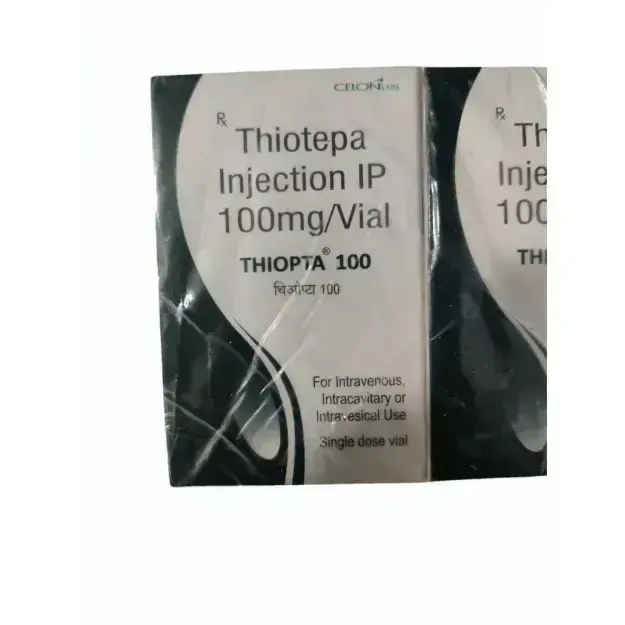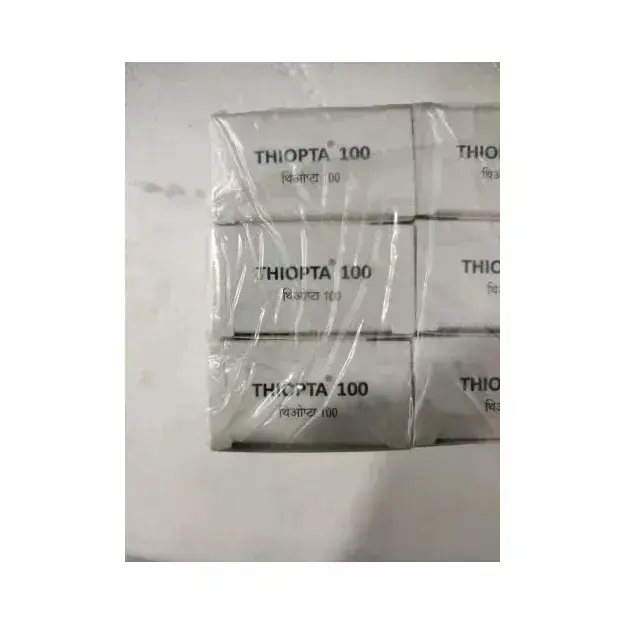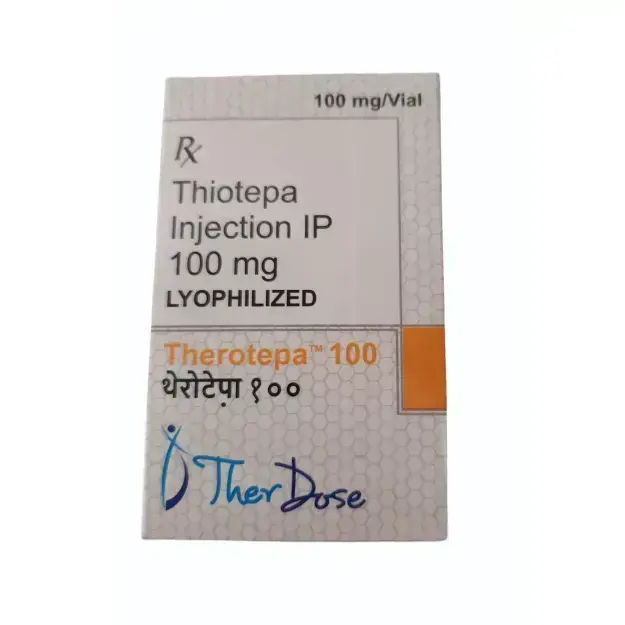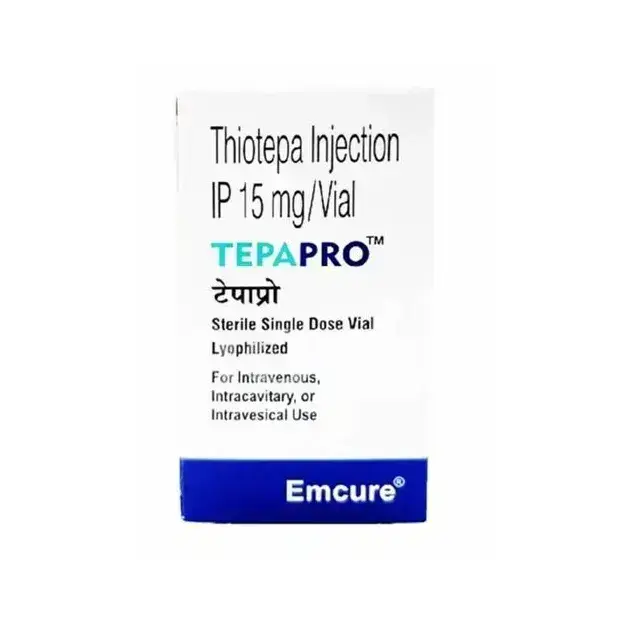Thiopta brand contains Thiotepa is an alkylating agent used primarily in chemotherapy to treat various types of cancer. It is a nitrogen mustard compound with cytotoxic properties that interfere with the DNA of cancer cells, preventing their growth and replication. Since its development, thiotepa has been used in hematopoietic stem cell transplantation, ovarian cancer, bladder cancer, and other malignancies. Thiotepa remains a vital chemotherapy agent, particularly in stem cell transplantation and certain cancers. Despite its potential side effects, it provides significant benefits in cancer treatment when used under strict medical supervision. Ongoing research continues to explore new applications and improved delivery methods to maximize efficacy and minimize toxicity.
Chemical Structure and Mechanism of Action
Thiotepa (C6H12N3PS) is a triethylenethiophosphoramide compound that belongs to the family of alkylating agents. It works by cross-linking DNA strands, leading to disruption in DNA synthesis and eventual cell death. Its mechanism involves:
-
Alkylation of DNA: Thiotepa forms covalent bonds with DNA bases, leading to the inhibition of DNA replication and transcription.
-
Cell Cycle Arrest: It affects rapidly dividing cancer cells by inducing apoptosis (programmed cell death).
-
Cytotoxic Effects on Tumor Cells: Due to its high toxicity, thiotepa is used in conditioning regimens before bone marrow transplantation.
Medical Uses of Thiotepa Thiotepa has several approved and off-label medical applications, mainly in oncology and transplantation.
Hematopoietic Stem Cell Transplantation (HSCT)
Ovarian Cancer
Bladder Cancer (Intravesical Use)
Breast Cancer
Lymphoma and Leukemia
Central Nervous System (CNS) Tumors
Dosage and Administration
Thiotepa is administered in different ways depending on the condition being treated:
-
Intravenous (IV) infusion: Most common route, used in cancer therapy and transplantation.
-
Intravesical administration: Directly into the bladder for bladder cancer treatment.
-
Intrathecal administration: In rare cases, for CNS tumors or leukemia affecting the brain.
Dosage varies based on patient condition, cancer type, and combination with other chemotherapy agents.
Side Effects and Risks
Like other chemotherapy drugs, thiotepa has significant side effects due to its cytotoxic nature:
Bone Marrow Suppression
-
Causes low blood cell counts, leading to anemia, neutropenia (low white blood cells), and thrombocytopenia (low platelets).
-
Increases risk of infections and bleeding.
Gastrointestinal Effects
-
Nausea, vomiting, and diarrhea are common.
-
Loss of appetite and weight loss can occur.
Neurological Effects
-
Fatigue, dizziness, headache, and confusion.
-
Rare cases of neurotoxicity leading to cognitive impairment.
Hair Loss (Alopecia)
Skin Reactions
Bladder Toxicity
Infertility and Teratogenicity
Precautions and Contraindications
-
Pregnancy and Breastfeeding: Contraindicated due to teratogenic effects.
-
Liver and Kidney Disease: Requires dose adjustment or avoidance.
-
Pre-existing Infections: Risk of exacerbating infections due to immunosuppression.
-
Avoid Live Vaccines: Immunosuppressed patients should not receive live vaccines.
Current Regulations and Availability
-
Thiotepa is approved by regulatory bodies like the U.S. FDA, EMA (Europe), and other health agencies.
-
Included in the WHO List of Essential Medicines for cancer treatment.
Ongoing Research and Future Applications
-
Combination Therapies: Studies on combining thiotepa with newer drugs to improve efficacy.
-
Pediatric Oncology: Investigating its role in treating childhood cancers like neuroblastoma.
-
Gene Therapy Adjunct: Research on using thiotepa in genetic and cell-based therapies.
-
Nanotechnology Delivery Systems: Exploring targeted delivery to reduce toxicity.
Ethical and Social Considerations
-
Due to its high toxicity, thiotepa is only administered in controlled medical settings.
-
High treatment costs may limit access in developing regions.
-
Patients require long-term monitoring due to delayed side effects.
X









